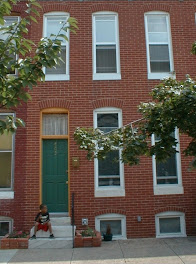By: Robert Horton, Loan Officer, NHS of Baltimore
All of us have bills; some people have more than others. Due to unforeseen circumstances, some bills are not paid on time or not at all. This could be a temporary situation or a long term one. Regardless of the length of time, a person will be placed in a collection department of a company or a collection agency. When this is done, there are rights that consumers have.
The specified time for collectors to call is from 8:00 a.m. to 9:00 p.m. If a call is made prior to 8:00 a.m. or after 9:00 p.m., the collector is in violation of the law. The consumer has the right to file a complaint with the FCC (Federal Communications Commission).
A consumer cannot be threatened by a collector in any way. This is a violation of the law. The consumer does not have to listen to any threats from any collector and should report the collector and the company to the FCC.
When a person fails to answer the telephone, a message is left on his or her voicemail most of the time. Some messages are funny, some are serious, some long, and some short. A collector is supposed to leave only his or her name, telephone number, and company name. This is appropriate. If anything else is left, this is a violation because the person that the message was intended for may not be the one who listens to it. Information about the debt heard by another on a voicemail is a violation of privacy laws.
Collectors are not to discuss a consumer’s debt with another person. This is a violation of federal privacy laws. If done by a collector, he or she and the company are in trouble with the federal government and should be reported.
There are more consumer rights, but these are the four most violated by collectors. Consumers must be aware of their rights at all times. If you feel that your consumer rights are being violated, you can contact the FCC to file complaints.
Monday, May 23, 2011
Monday, May 2, 2011
Home Values: How Your Neighbors Can Hurt The Value of Your Home
By: Raevyn Jones, Marketing Coordinator, NHS of Baltimore
When people think of bad neighbors, they simply think of nuisances who you may have to see as you come and go. What consumers don’t know is that bad neighbors aren’t just annoying, they can cost you real money when it’s time to sell your home.
An overgrown yard, peeling paint, and clutter can easily knock 5-10% off the sale price of your home. If you are looking into buying a property and the neighbor’s yard looks as if the may be a hoarder, you probably should reconsider. If you have already purchased a property and neighbors become a problem later, there are several things you can do:
Approaching your neighbor in a friendly, good manner is always a good start. A nice way to suggest that your neighbors do some maintenance on their property is refer them to free or low-cost services that will help them keep up their property. Habitat for Humanity is one of several organizations that have programs offering exterior painting, landscaping, weather-stripping, and minor repairs to low income home-owners. A lot of local governments offer these programs as well.
When dealing with this kind of issue, it is very important to find out if your sloppy neighbors are tenants or owners of the home. If the person in the home is a tenant, the first thing you should do is track down the owner. A real estate agent can help you do this or you can contact your county’s property-tax assessor’s office. After you identify the owner, a letter needs to be written to them that is complete with photos of the problem and a request in action to solve the problem.
Another resource you can use is a homeowners association. If you have a homeowners association, which most people do, you can request that it take action. Your city or county’s public health department may be able to step in if trash or unsanitary conditions are a part of the problem.
If none of these options work, you can always add features to your property to make up for neighbors problems. Putting up a privacy fence or tall hedge could downplay the issue.
When people think of bad neighbors, they simply think of nuisances who you may have to see as you come and go. What consumers don’t know is that bad neighbors aren’t just annoying, they can cost you real money when it’s time to sell your home.
An overgrown yard, peeling paint, and clutter can easily knock 5-10% off the sale price of your home. If you are looking into buying a property and the neighbor’s yard looks as if the may be a hoarder, you probably should reconsider. If you have already purchased a property and neighbors become a problem later, there are several things you can do:
Approaching your neighbor in a friendly, good manner is always a good start. A nice way to suggest that your neighbors do some maintenance on their property is refer them to free or low-cost services that will help them keep up their property. Habitat for Humanity is one of several organizations that have programs offering exterior painting, landscaping, weather-stripping, and minor repairs to low income home-owners. A lot of local governments offer these programs as well.
When dealing with this kind of issue, it is very important to find out if your sloppy neighbors are tenants or owners of the home. If the person in the home is a tenant, the first thing you should do is track down the owner. A real estate agent can help you do this or you can contact your county’s property-tax assessor’s office. After you identify the owner, a letter needs to be written to them that is complete with photos of the problem and a request in action to solve the problem.
Another resource you can use is a homeowners association. If you have a homeowners association, which most people do, you can request that it take action. Your city or county’s public health department may be able to step in if trash or unsanitary conditions are a part of the problem.
If none of these options work, you can always add features to your property to make up for neighbors problems. Putting up a privacy fence or tall hedge could downplay the issue.
Subscribe to:
Comments (Atom)




+for+blog.jpg)
.jpg)
